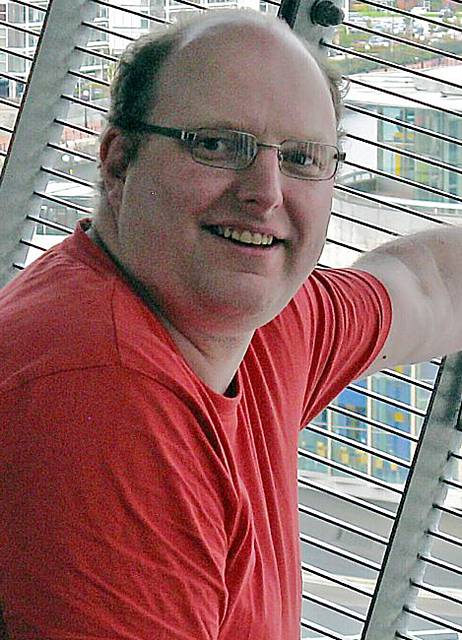Victory on buses for battling Doug
Date published: 19 January 2017

Doug Paulley
DISABLED campaigner Doug Paulley has claimed "an important victory" in his legal battle for wheelchair users to have priority use for wheelchair spaces on buses.
The Supreme Court unanimously ruled it was not enough for drivers to "simply request" a non-wheelchair user to vacate the space without taking any further steps.
The highest court in the land ruled, if a refusal to move is unreasonable, the driver must consider taking further steps to "pressurise" the reluctant passenger to leave the space, "depending on the circumstances".
Those steps could in appropriate cases, include "a refusal to drive on".
Mr Paulley, a former Oldhamer now living in Wetherby, West Yorkshire, was cheered by other wheelchair users and disabled people outside the court in London after the ruling.
He said: "I am delighted. It has been a long fight. We have achieved something really substantial here which will make a difference to people who need the wheelchair space - not just wheelchair users but other disabled people.
"This is important - a significant cultural change."
Former Hulme Grammar School pupil Mr Paulley's marathon legal battle was triggered on the morning of February 24, 2012, when he attempted to board the 9.40 bus from Wetherby to Leeds operated by FirstGroup which had a sign saying: "Please give up this space if needed for a wheelchair user."
He was on his way to catch a train to meet his Oldham-based parents for lunch in Stalybridge. But he was left at the stop because a woman with a sleeping baby in a pushchair refused to move out of the designated area when asked by the bus driver. She said the buggy would not fold.
FirstGroup had a policy of "requesting but not requiring'' non-disabled travellers, including those with babies and pushchairs, to vacate the space if it is needed by a wheelchair user. Yesterday, seven Supreme Court justices ruled FirstGroup's policy should have gone further.
Court president Lord Neuberger said: "It was not enough for FirstGroup to instruct its drivers simply to request non-wheelchair users to vacate the space and do nothing if the request was refused. The approach of the driver must depend upon the circumstances, but where the refusal is unreasonable, some further step to pressurise the non-wheelchair user to move should be considered."
Lord Neuberger added: "And a refusal to drive on should be considered in appropriate cases."
Most Viewed News Stories
- 1Milan Bar in Lees and The Bank at Delph close doors with immediate effect
- 2Latics announce retained list
- 3Punch perfect Kyle is Oldham's latest national boxing champ
- 4Attack on shop worker filmed and posted on Snapchat results in jail sentence for Oldham man
- 5Second-hand music, books and media shop opens in Mossley




